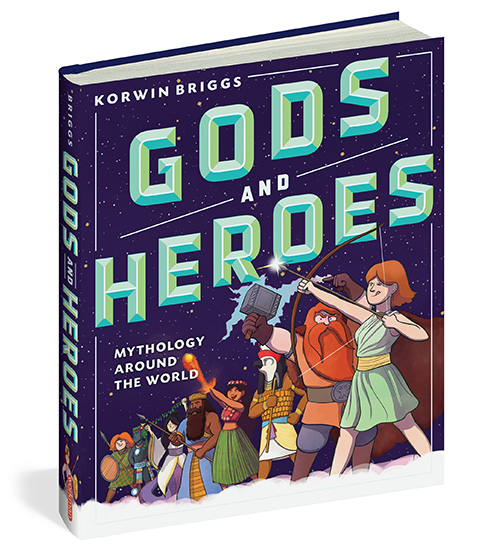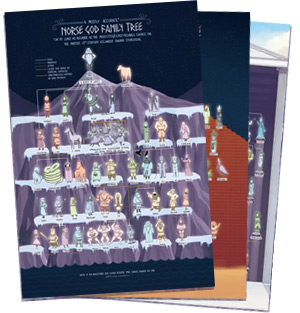Voltaire Broke the Lottery
First, just for the record, I know that green money in 18th century France is historically inaccurate. I considered using some actual 18th century french money but I’d be surprised if more than like, one person would recognize it (I sure didn’t). This is actually one of the more difficult things about doing these comics. Symbols are usually the quickest way to communicate visually – floating notes for music, flags for nationalities, treasure chests for money, etc. But if you’re trying to draw, say, 16th century Siam? They didn’t have modern musical notation, or a flag you’d recognize, or pirate-chests full of spanish doubloons. But I’ll stop making excuses. I’m sorry I drew green dollars with Voltaire’s 1729 bags o’ money.
Now the story of Voltaire and the Lottery:
I didn’t know until last week that Voltaire was rich. I figured he had enough to afford his bodacious perm but it turns out he was like, robber baron rich. And most of that was due to some very good investments that wouldn’t fly today but were fine before we made laws against insider trading. But he couldn’t have made any of those investments without a small fortune to start, and that’s where his buddy Charles Marie De La Condamine came in. Charles had figured out how to break the lottery. Here’s how:
Short Version:
France accidentally started a lottery where, under certain conditions, the total prize was worth more than the total cost of all the tickets.
Long Version:
France was hurting financially, which meant it had to cut the interest rate on its bonds, which meant french bonds were worse investments, which meant that no one wanted them. The deputy finance minister tried to get people to buy more by making every new bond double as license to buy a lottery ticket, once a month, for 1/1000th of the total price of the bond. With me so far?
So what Charles Marie De La Condamine realized was that a 5000 livre bond would allow you to buy one ticket for five livers, but five 1000 livre bonds would let you buy five tickets for five livres. And if you bought up all the cheapest bonds, then you could buy up all the cheapest lottery tickets, and win a lot more than you spent.
Charles had two problems: he didn’t have enough money to buy all the bonds/tickets, and even if he did, going to a notary and buying a bajillion lottery tickets might get him caught. But his friend Voltaire had a bunch of rich friends AND a way with the notaries, ifyaknowwhatImean.
Once everything was in place, their little cabal of “investors” won, and won, and won. Each individual jackpot was enough for one person to never need to work again – even shared amongst all of them, it was a huge windfall. But now we get to my favorite part of the story, which is also a wonderful example of Voltaire’s character. By which I mean he was kind of an ass.
See, it was customary at the time to write little prayers and good-luck notes on the back of your lottery ticket before handing it in. Like, “Good luck to me!” or “God give me money!” or whatever. At some point Voltaire started writing things like “here’s to Charles Marie De La Condamine’s great idea!” and “Long live the deputy finance minister!” and, I imagine, some other more colorful things. Most of the sources I’ve seen on this seem to be drawing from the same source, so I only know those two. My guess is it’s either preserved tickets somewhere or notes from the court proceedings, but that’s really just a guess.
But oh yes – the court proceedings. So eventually the french government caught on, and since Voltaire had written everyone’s names on his lottery tickets, they were placed under arrest. And then, after the court discovered that they hadn’t broken any laws, they were released and allowed to keep their winnings. That was it for the lottery though.
Both Charles Marie De La Condamine and Voltaire used their newfound fortunes to do some pretty cool stuff. Charles went from scientist to absurdly wealthy scientist, and started doing things like determining the shape of the earth (a slightly smooshed sphere), exploring the Amazon river, advocating for vaccination way before it was cool, and discovering how good quinine is at fighting malaria, which makes him indirectly responsible for the gin and tonic.
Voltaire is more well-known today, but in short: he wrote like a billion essays and letters and plays and whatnot, wrote Candide, advocated very loudly and publicly for things like human rights and separation of church and state and other things that helped inspire some pretty major political shake-ups over the next century (for instance, the American and French Revolutions), made friends with a lot of nobles and famous people, pissed off a lot of nobles and famous people, and generally just had a cool life.
The end.
It’s always interesting to me to find out where major historical figures got their fortunes. Because like, it’s rarely from something we’d consider totally good and just, especially before the industrial revolution. It’s mostly down to inheritance, marriage, and pillaging, with the occasional wealthy trader who’s escaped the notice of the pillagers and the even-less-occasional wealthy artisan. But they’re certainly well-represented among the Great People of History. I guess it’s hard to do Great Things if you’re struggling to eat? I’m not saying wealth makes you great, just that starvation probably doesn’t help.
I think I’m going to take a hiatus from french history for a while, as much as I love reading about it. Maybe I’ll do something from the classical world – I’ve been getting an awful lot of emails asking about Caligula. Yeah, I’ll do something about Caligula – he’s ridiculous, he’s nuts, and he gives me an opportunity to write something about the (in)accuracy of historical historians.
~Korwin



